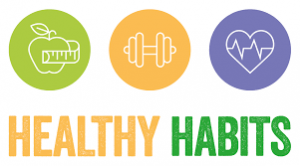Carob Healthy Chocolate Alternative
 Is carob a healthy chocolate alternative or is that just another marketing ploy to sell more carob? It’s often hard to separate fact from fiction in today’s marketplace, since advertising has promoting their product sales down to a science. Let’s take a look at all the benefits that carob has to offer, but also include some of the benefits of eating healthy chocolate—the darker kind. First, carob contains no caffeine or theobromine, another stimulant. Unlike caffeine that primarily works on the nervous system, theobromine affects your pulmonary and cardiovascular system. It can affect sensitive people and prove lethal to dogs and can cause fibroid tumors in humans.
Is carob a healthy chocolate alternative or is that just another marketing ploy to sell more carob? It’s often hard to separate fact from fiction in today’s marketplace, since advertising has promoting their product sales down to a science. Let’s take a look at all the benefits that carob has to offer, but also include some of the benefits of eating healthy chocolate—the darker kind. First, carob contains no caffeine or theobromine, another stimulant. Unlike caffeine that primarily works on the nervous system, theobromine affects your pulmonary and cardiovascular system. It can affect sensitive people and prove lethal to dogs and can cause fibroid tumors in humans.
Carob is naturally sweet.
If you’ve ever made the mistake of chomping down on a hunk of baker’s chocolate, the kind that has no sweetener added, you probably wore that scowl on your face that the bitter chocolate created for quite a while. Oil, cream and sugar are added to make it smooth and more palatable, but it also makes it far less healthy. One reason for the oils and milk or cream is to create a smooth, less grainy texture. Carob is both naturally sweet with a smooth texture that doesn’t require the extra additives.
You might not like chocolate if you watched the processing at the source.
Sure when you see the chocolate final product, it came from the clean sanitized factories locally. It doesn’t start out that way, however. Chocolate is fermented to get the chocolaty flavor we all love. To do that, it’s heaped on the ground in piles. Not only are there bugs flourishing in the area, there are dogs running loose who choose those piles as their personal urinal. The chocolate heats as it ferments, just as compost piles do. It releases moisture and the combination is a perfect setting for mold and bacteria to grow. Cancer-causing agents, aflatoxins, which occur with the molding now are in the cocoa beans. The processing of carob is quite different and doesn’t require fermentation.
People have eaten carob for centuries.
Carob, also known as St. John’s bread and locust, has a prominent place in the Bible and throughout history. The bean can be eaten raw or dried and ground for other purposes. While the nutrient value varies by the variety of carob, all contain a multitude of mnerals, which include magnesium, zinc, copper and more. Carob is a significant source of iron, potassium and calcium, too and it has an alkalizing effect for the body. It provides vitamins K, E, C and A, while also providing protein and a healthy ration of Omega-6 to Omega-3 fatty acids.
– Carob is rich in antioxidants that can boost the immune system and help fight environmental toxins.
– Carob may help lower cholesterol and can be used as a digestive aid. Chocolate, on the other hand, is one culprit that may trigger the digestive problem GERD.
– You can use carob in a number of ways from eating the fresh pods to roasting it. You’ll often find carob powders in the grocery, but be aware these may have commercial
additives.
– Dark chocolate does have many health benefits, too. It’s rich in nutrients and antioxidants, plus may lower blood pressure, raise good cholesterol levels, prevent plaque build up and prevent heart disease. It’s also good for the brain and skin.





 The right gear doesn’t mean the right “in-style, latest outfit.” It does mean having the clothing appropriate for the workout, the right equipment and good shoes. The clothing appropriate for a hard workout doesn’t have to be pretty, but it should soak up sweat—they’ll be a lot of that in our programs. Comfortable shorts and t-shirts that don’t restrict your movement and socks that absorb sweat. Some people wear a head band or backward hat to soak up the sweat and keep it of their brow. For ladies, you’ll need something to tie your hair back if it’s long.
The right gear doesn’t mean the right “in-style, latest outfit.” It does mean having the clothing appropriate for the workout, the right equipment and good shoes. The clothing appropriate for a hard workout doesn’t have to be pretty, but it should soak up sweat—they’ll be a lot of that in our programs. Comfortable shorts and t-shirts that don’t restrict your movement and socks that absorb sweat. Some people wear a head band or backward hat to soak up the sweat and keep it of their brow. For ladies, you’ll need something to tie your hair back if it’s long.
 There are all types of squats that can be broken down to two categories, those using weights and those using only body weight. No matter which type you’re focusing on, you have to do squats the right way or you won’t get all the wonderful benefits they provide and in some cases, may even injure yourself doing them improperly. Here are some tips on the most common mistakes that occur when doing a squat, which is squatting down with your body facing forward, feet pointing forward and then rising again. It’s a basic movement that’s often done wrong.
There are all types of squats that can be broken down to two categories, those using weights and those using only body weight. No matter which type you’re focusing on, you have to do squats the right way or you won’t get all the wonderful benefits they provide and in some cases, may even injure yourself doing them improperly. Here are some tips on the most common mistakes that occur when doing a squat, which is squatting down with your body facing forward, feet pointing forward and then rising again. It’s a basic movement that’s often done wrong.
 To get the best results and a diet that you’ll stick with or a healthy eating plan that’s good for you for a lifetime, you need to tailor your diet to you. Some of the tailoring is important for more than just taste preferences. Some people can’t digest certain foods properly, lactose and gluten intolerance are examples of that. There are also food allergies that affect the type of food on your diet. List all the foods you can’t eat because of health reasons first.
To get the best results and a diet that you’ll stick with or a healthy eating plan that’s good for you for a lifetime, you need to tailor your diet to you. Some of the tailoring is important for more than just taste preferences. Some people can’t digest certain foods properly, lactose and gluten intolerance are examples of that. There are also food allergies that affect the type of food on your diet. List all the foods you can’t eat because of health reasons first.
 Rice cakes are not necessarily tasty, but they are low in calories. However, you don’t have to give up great flavor to lose weight. In fact, many people who eat healthy find they love their new way of eating and it’s almost gourmet. They use spices and herbs to boost the flavor. These don’t add calories, but they do add nutrients and have health benefits, too. Here are some great spices to give your favorite low cal foods a kick. A good place to start is a personal favorite, cinnamon. Cinnamon can boost the flavor in sauces, meats and vegetables. It actually can replace some of the sugar. Make your oatmeal dynamic with a sprinkle of cinnamon and some nuts or berries. It helps control blood sugar levels and reduces the risk of coronary disease. (Cinnamon basil is also a personal favorite.)
Rice cakes are not necessarily tasty, but they are low in calories. However, you don’t have to give up great flavor to lose weight. In fact, many people who eat healthy find they love their new way of eating and it’s almost gourmet. They use spices and herbs to boost the flavor. These don’t add calories, but they do add nutrients and have health benefits, too. Here are some great spices to give your favorite low cal foods a kick. A good place to start is a personal favorite, cinnamon. Cinnamon can boost the flavor in sauces, meats and vegetables. It actually can replace some of the sugar. Make your oatmeal dynamic with a sprinkle of cinnamon and some nuts or berries. It helps control blood sugar levels and reduces the risk of coronary disease. (Cinnamon basil is also a personal favorite.)




 If you want to be rich, find someone who is rich and follow their habits. If you want to be healthy, learn the habits of healthy people and mirror them. It’s a simple method to helping yourself to a world of good health and fitness. One of the easiest habits to mimic, particularly if you workout and sweat, is to drink plenty of water. It chases away the mental fuzziness, makes you more alert. While the average is about two liters or eight 8-ounce glasses, some people need more on days they profusely perspire. Carry water with you at all times and sip on it frequently.
If you want to be rich, find someone who is rich and follow their habits. If you want to be healthy, learn the habits of healthy people and mirror them. It’s a simple method to helping yourself to a world of good health and fitness. One of the easiest habits to mimic, particularly if you workout and sweat, is to drink plenty of water. It chases away the mental fuzziness, makes you more alert. While the average is about two liters or eight 8-ounce glasses, some people need more on days they profusely perspire. Carry water with you at all times and sip on it frequently.
 Many of the foods you eat are out of habit, more than preference. While you may think they’re your favorite, once you get used to a healthy diet and they’re no longer a familiar meal, you’ll find they don’t taste as good as you thought. Here are some diet hacks to help you stick with it when the fast food parlor beckons you as you pass it or the box of cookies calls. Make sure you identify your goal clearly and the reasons you want to eat healthy and/or lose weight. It’s one of the first hacks to help you stay on track.
Many of the foods you eat are out of habit, more than preference. While you may think they’re your favorite, once you get used to a healthy diet and they’re no longer a familiar meal, you’ll find they don’t taste as good as you thought. Here are some diet hacks to help you stick with it when the fast food parlor beckons you as you pass it or the box of cookies calls. Make sure you identify your goal clearly and the reasons you want to eat healthy and/or lose weight. It’s one of the first hacks to help you stay on track.